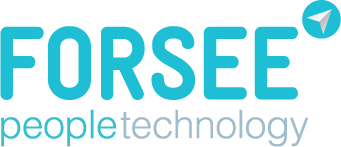Why Data-Driven Hiring Matters
In today’s ultra-competitive market, assembling the right team is crucial for success. Yet many businesses still rely on gut feeling when making critical hiring decisions—an approach that’s as risky as blindfolded darts. Instead, consider applying the proven “Moneyball” methodology—famous for transforming Major League Baseball—directly to your recruitment strategy.
Welcome to Moneyball for Business: a systematic, analytics-driven approach that uses data to optimize talent acquisition and development. If you’re a forward-thinking leader determined to find and keep top talent, this strategy may be your winning ticket.
The Age of Algorithms: Lessons from Moneyball
Michael Lewis’s book Moneyball and its film adaptation starring Brad Pitt chronicled how the 2002 Oakland A’s used “sabermetrics” to identify undervalued players and achieve record-breaking success—despite having a fraction of the budget of larger teams.
The key? Data analytics. Instead of making decisions based on gut feelings and decades of tradition, Oakland’s management used a consistent, algorithmic approach to build a team of high performers. In doing so, they challenged—and ultimately upended—baseball’s reliance on subjective scouting. It revolutionised baseball.
The Pitfalls of Gut-Based Hiring
Gut-based hiring decisions aren’t just confined to baseball scouts; they’re also widespread in the business world. Here’s why relying on intuition can undermine your organization’s growth and stability:
- Human Biases:
Nobel laureate Daniel Kahneman highlighted how our brains instinctively take cognitive shortcuts, often leading to overconfidence. Without immediate feedback loops, flawed hiring decisions can persist far too long before they’re corrected. - Costly Mistakes:
A poor hire can slow productivity, damage team morale, and drive away top performers. A toxic or underperforming employee can spread disengagement like a virus, eventually hurting both reputation and revenue. Download our Cost of Bad Hire Calculator
Predictive Hiring: The Moneyball Approach for Business
The good news? Proven predictive hiring technology is now widely available. Tools like Harrison Assessments employ a weighted algorithm that measures a candidate’s suitability for specific roles—akin to how sabermetrics assessed players’ performance potential.
How Predictive Hiring Works
- Job Success Formula:
Identify the traits, skills, and experience correlated with top performance for a particular role. - Algorithmic Scoring:
Evaluate and rank candidates against 175+ factors, generating an Overall Predictive Score that accurately forecasts performance. - Eligibility & Suitability:
Gain data-backed insights into whether candidates can do the job (eligibility) and whether they enjoy the work (suitability). - Cognitive Abilities:
Assess problem-solving and critical-thinking skills for roles where analytical rigor is essential. - Structured Interviews:
Use a tailored interview guide to explore potential red or yellow flags, ensuring each conversation is both efficient and revealing.
By incorporating predictive hiring, you transform guesswork into measurable, actionable data—essentially giving your organization its own “Moneyball” playbook.
Personalized Talent Development
Predictive analytics doesn’t end after you make a hire. Once people join your team, personalized data helps guide talent development and retention.
- Targeted Coaching:
Identify individual strengths and weaknesses to allocate training resources where they’ll be most effective. - Role Compatibility:
Avoid promoting top performers into ill-fitting roles—e.g., turning a star salesperson into an unprepared manager—by measuring compatibility before making critical moves. - Career Pathing:
Align employees’ aspirations with positions they’re more likely to excel in, increasing engagement and reducing turnover.
Building Organizational Culture & Benchmarking Performance
A thriving organizational culture underpins every successful business—but first, you need to measure it. Organizational Analytics can provide insights into your existing culture, highlighting areas of alignment and disconnect between leadership and frontline employees.
- Culture Assessments:
Use data to assess everything from communication patterns to risk tolerance, so you can design initiatives that address real issues. - Benchmarking High Performers:
By analyzing what drives top performers versus average or low performers, you can refine your Job Success Formulas to enhance hiring quality continuously. - Data-Driven Improvement:
With a clearer picture of your organizational dynamics, you can more effectively target programs that improve morale, reduce turnover, and boost profitability.
Taking the Next Step: Adopt Moneyball for Business
The days of believing “you can’t measure people” are over. Award-winning tools like Harrison Assessments offer an ISO 10667-compliant, job-specific psychometric solution that integrates seamlessly with HRIS platforms. In as little as 20 minutes, you can capture the key data needed to:
- Reduce costly hiring mistakes.
- Improve team alignment and productivity.
- Strengthen employee engagement and retention.
- Cultivate a culture of continuous improvement.
Rather than leaving your business outcomes to chance, harness the power of data and algorithms. After all, the next big win in the talent war might just come from the analytics suite—rather than the conference room.
Ready to See Moneyball in Action?
If you’re ready to take your recruitment and talent development strategy to the next level, request a demo and discover how Forsee can help you implement a Moneyball for Business approach. Gain access to the best data, make better decisions, and build the high-performing teams your organization deserves.
Stop rolling the dice with your most valuable resource—your people—and start leveraging the power of data-driven insights today.

